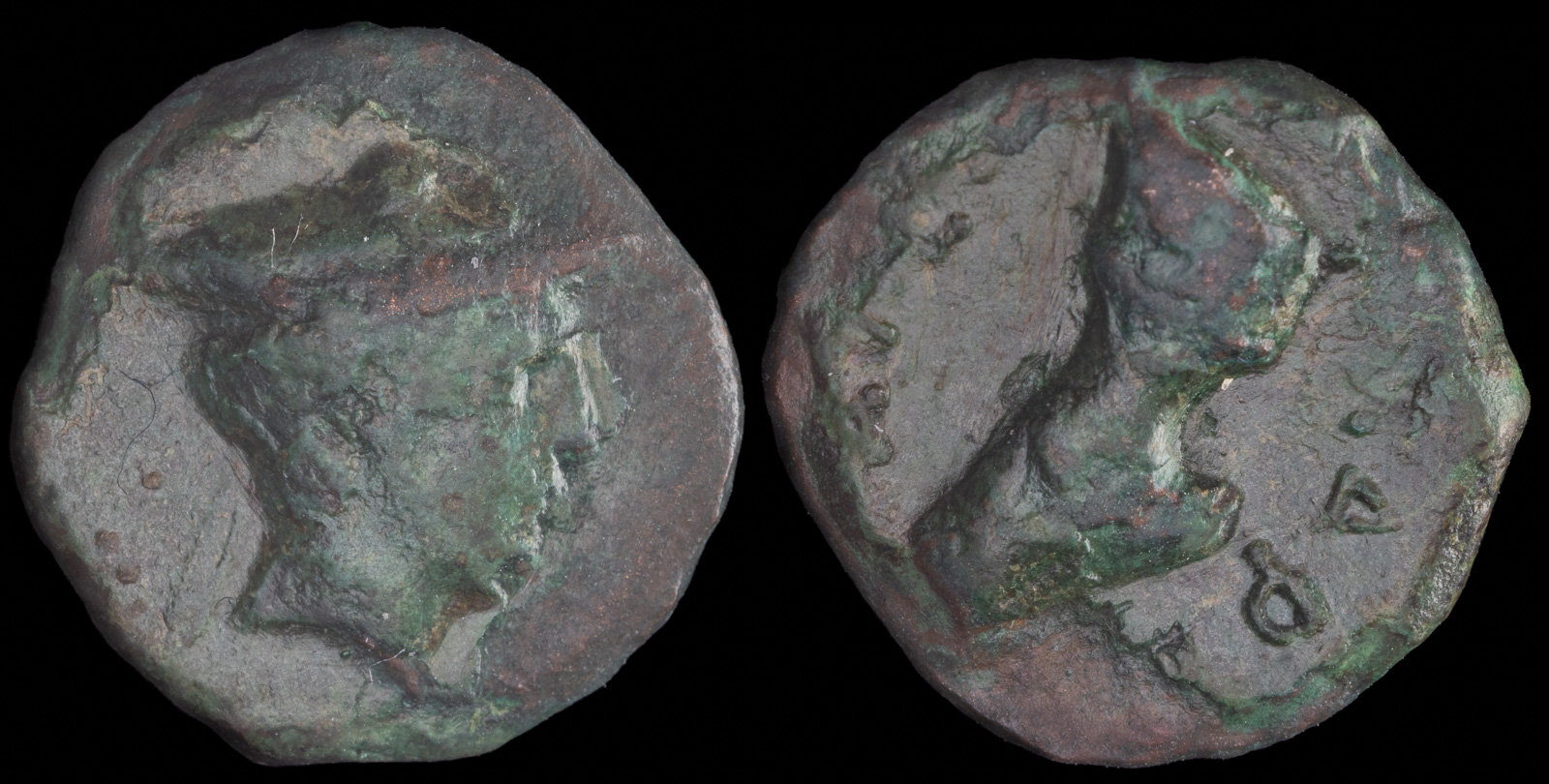
Thessaly, Pherai
Alexander, Tyrant (369-359 BCE)
Ae 13.50mm 2.12g
Obverse: Head of Jason right, wearing petasos
Reverse: ΑΛΕΞΑΝΔΡΟΥ, fetlock and hoof of horse right
Rogers 522; BCD Thessaly II 707.2
I’ve considered for some time whether Alexander of Pherai belonged in this collection of Philip II, Alexander III, and the Age of the Diadochi. For some time, I excluded him because he didn’t really interact with Philip II. There was an overlap of only two or three years when they both ruled, since Philip II became king in 359 BCE and Alexander died in 356 BCE.
Nevertheless, he must have affected Philip in some way. In roughly 367 BCE, the Theban general Epaminondas led an expedition against Alexander. It’s believed that Philip was very close to Epaminondas and even took many of his army reforms from him. Therefore, it seems likely that Philip was imtimately aware of this campaign and may have even take part in it.
Alexander also faced off with Philip’s brother, Alexander II, who came to the aid of several Thessalian cities, notably the staunch Macedonian ally of Larissa, when they refused to submit to Alexander of Pherai. Again, it seems likely that Philip took part in that effort.
Since it’s believed that Philip III Arrhidaios was born in 359 BCE, and his mother was Philinna of Larissa, then Philip’s marriage to her may have been a strengthening of the bond between Larissa and Macedon against Alexander.
Alexander, of course, wasn’t the greatest of guys. He was known for his cruelty and massacres, particularly of many of the citizens of Skotussa. Nevertheless, he was certainly a player in this story.
Jason of Pherai, father of Alexander of Pherai, is murdered, after which his brother Polydoros takes the throne.
Polyphron kills his brother Polydoros and takes the throne of Pherai. His nephew, Alexander, survives.
Alexander of Pherai murders his uncle Polyphron and takes the throne of Pherai.
Alexander II intervenes in Thessaly to support the city of Larissa against the tyrant Alexander of Pherae.
July
The Theban Pelopidas is sent to negotiate with Alexander of Pherai, who throws him in prison.
Alexander of Pherai massacres the inhabitants of Skotussa.
Thebes defeats Alexander of Pherai at the Battle of Cynoscephalae, but their general Pelopidas is killed.
With Theban power down after the death of Epaminondas, Alexander of Pherai takes Tinos and sells the inhabitants as slaves, then besieges Peparethos. Athens defeats Alexander near Sounion and relieves Peparethos. Alexander then plunders Piraios.